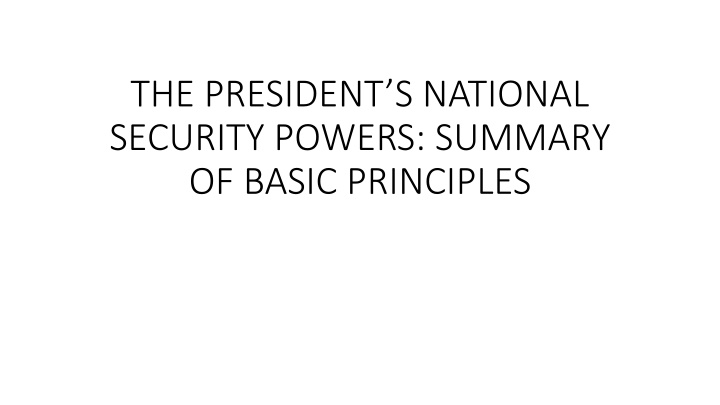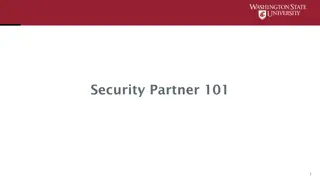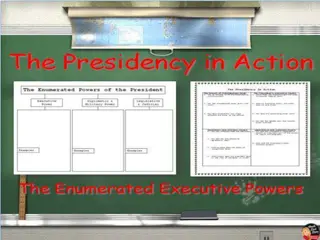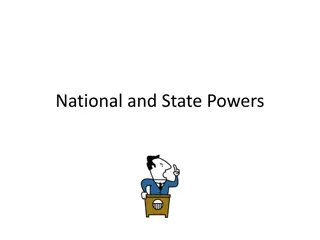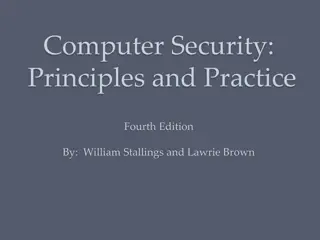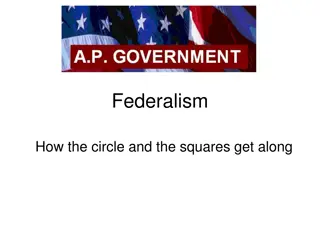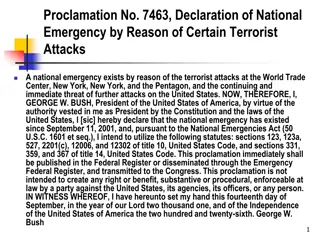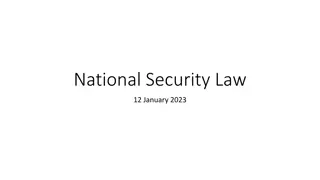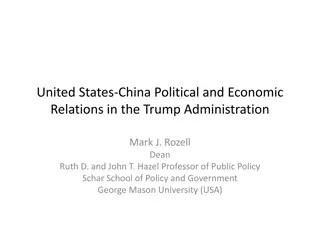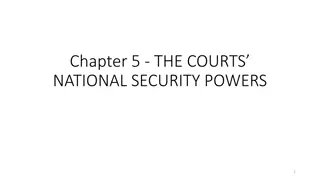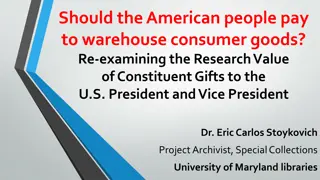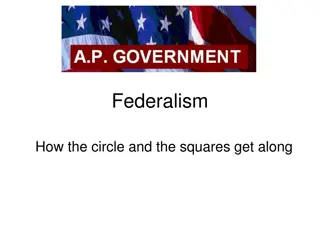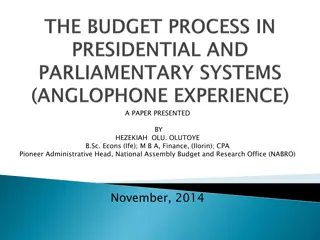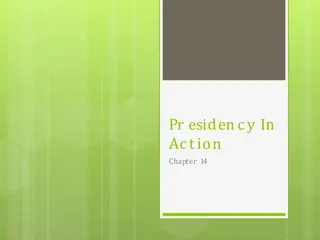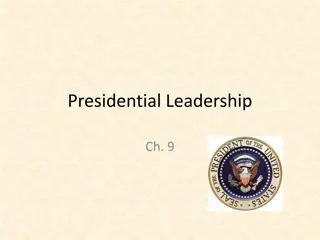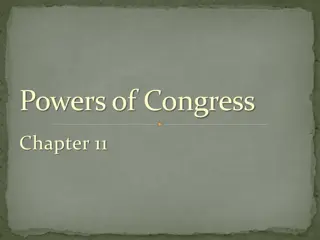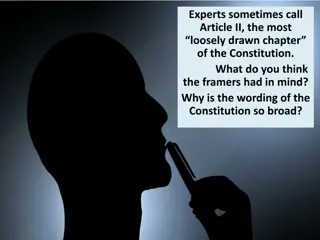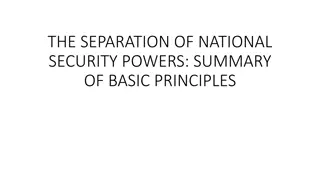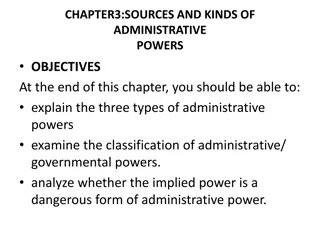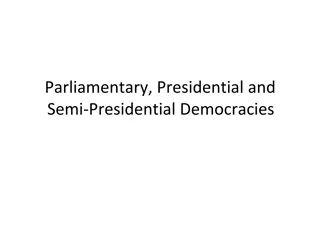Presidential National Security Powers: Summary of Basic Principles
In Zivotofsky II, the Supreme Court recognized the President's exclusive implied powers despite acknowledging the role of Congress in lawmaking. While the President engages in foreign affairs activities, no general plenary and exclusive foreign affairs power is explicitly vested in the Constitution. The President's practical advantages often lead to broad delegations of authority, especially in the absence of Congressional action. Customary authority may be derived from repeated executive actions in foreign affairs. The President's inherent power to conduct defensive war is implied by clauses like the Commander in Chief Clause.
Download Presentation

Please find below an Image/Link to download the presentation.
The content on the website is provided AS IS for your information and personal use only. It may not be sold, licensed, or shared on other websites without obtaining consent from the author.If you encounter any issues during the download, it is possible that the publisher has removed the file from their server.
You are allowed to download the files provided on this website for personal or commercial use, subject to the condition that they are used lawfully. All files are the property of their respective owners.
The content on the website is provided AS IS for your information and personal use only. It may not be sold, licensed, or shared on other websites without obtaining consent from the author.
E N D
Presentation Transcript
THE PRESIDENTS NATIONAL SECURITY POWERS: SUMMARY OF BASIC PRINCIPLES
In Zivotofsky II, the Supreme Court held for the first time that the President has an exclusive implied power that trumps inconsistent legislation. At the same time, it recognized that the President s recognition determination is part of a political process that may require Congress to make laws.
While the President thus recognizes foreign states, negotiates treaties, receives ambassadors, collects and analyzes foreign intelligence, conducts foreign relations, and, as a practical matter, usually takes the initiative in making foreign policy, no constitutional text vests him with any general plenary and exclusive foreign affairs power. The Supreme Court s description of such a power of the President ( as the sole organ of the federal government in the field of international relations ) in Curtiss-Wright was dictum and does not mean that the President is free from Congress s lawmaking power in the field of international relations.
The Presidents practical advantages and experience in exercising foreign affairs powers, however, coupled with Congress s disadvantages, may often require broad and generously construed delegations of statutory authority to him, and concede the initiative to him when Congress has not acted.
The same factors may help support finding customary authority derived from repeated executive actions in foreign affairs, such as the claims settlement in Dames & Moore or, arguably, for repeated but limited uses of armed force abroad to rescue Americans.
The framing of the Declare War Clause (leaving to the Executive the power to repel sudden attacks, according to Madison s notes), the practical necessity to defend against attacks, and the Commander in Chief Clause all suggest that the President has an inherent power to fight what we have called defensive war.
But the defensive war power may be subject to legal limits drawn from international law, as well as temporal limits that depend on the duration of a threat or attack and practical funding limits. These limits are disputed, mainly unaddressed by case law, and subject to inter- branch negotiation.
The Commander in Chief Clause at a minimum vests the President with the unitary civilian command of the armed forces. It is also understood to give the Commander in Chief control of day-to-day tactical military operations in authorized conflicts or defensive war, subject to the terms of any authorization from Congress. But which operations fall within the Commander in Chief s command authority, and whether command authority is beyond the reach of statute, are disputed and mainly unaddressed by case law.
The President has inherent constitutional authority to order measures to protect government officers and functions, at least from imminent or ongoing attack, when Congress has not occupied the field by applicable legislation.
